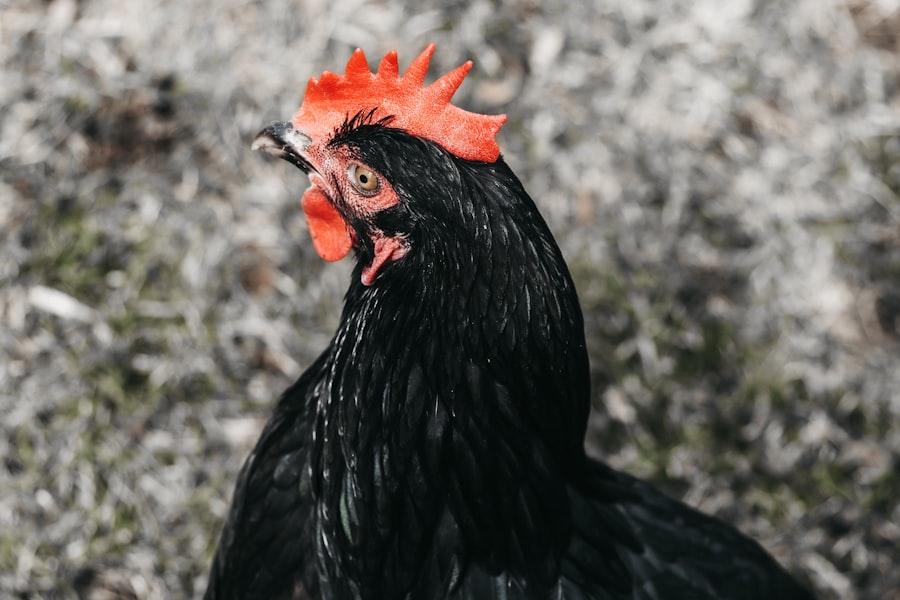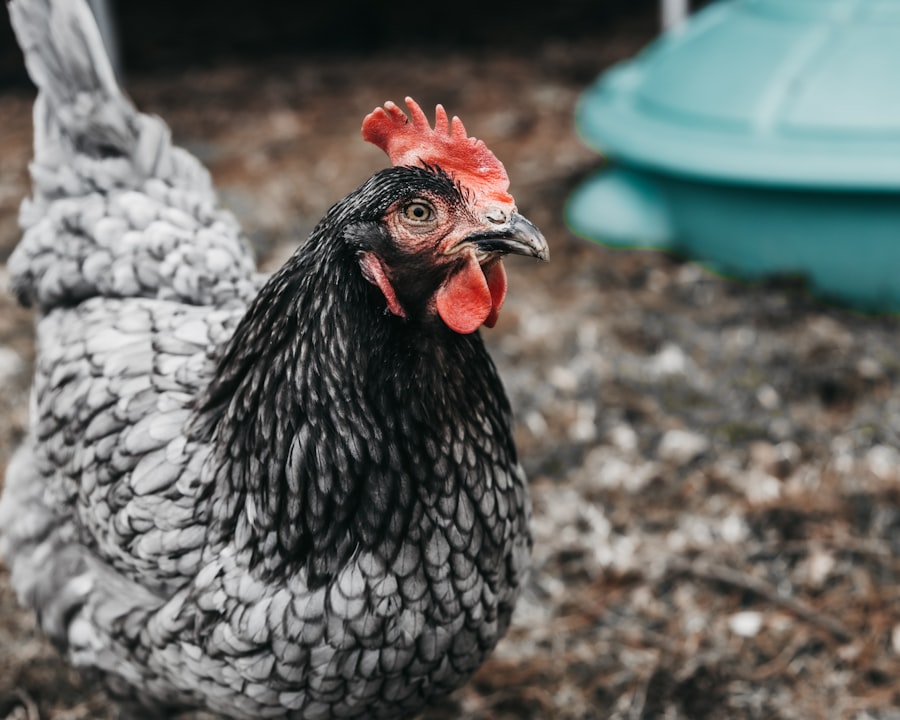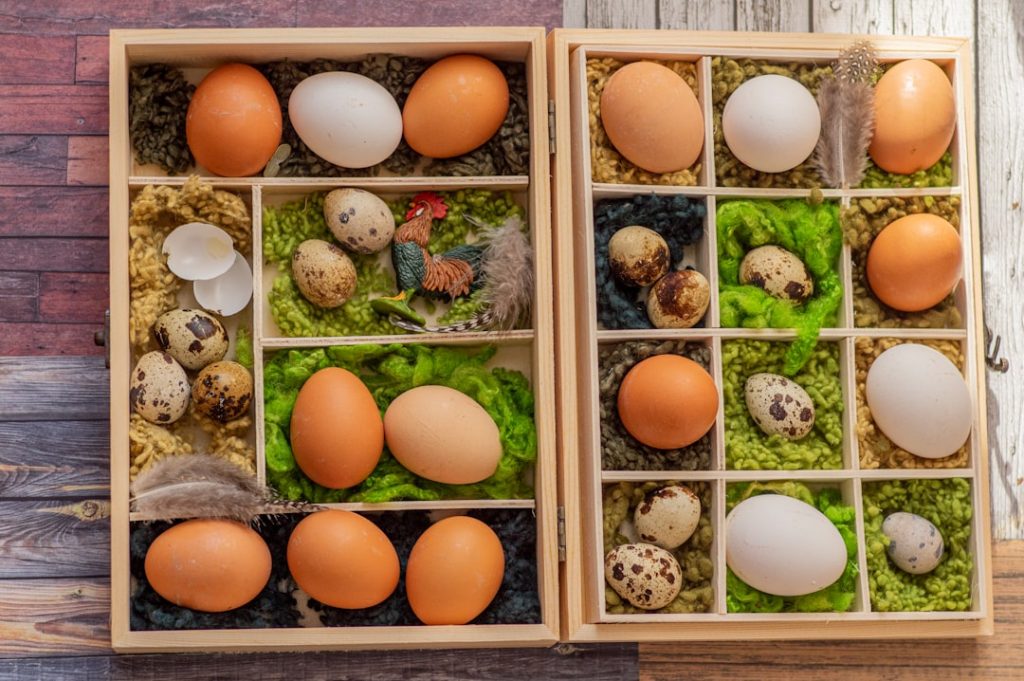Dogs and chickens possess distinct instincts shaped by their evolutionary history. Dogs, descended from wolves, have a natural predatory drive to chase and hunt small animals, including chickens. Chickens, as prey animals, exhibit a strong flocking instinct and are easily startled, relying on their group for safety and security.
These innate behaviors cannot be easily eliminated through training. Instead, it is essential to create an environment that accommodates both species’ instincts. For dogs, this involves providing appropriate outlets for their energy and prey drive, such as regular exercise and mental stimulation.
For chickens, it means establishing a secure and comfortable living space where they can engage in natural behaviors without the threat of predation. Understanding and respecting the instincts of both dogs and chickens is crucial for creating a safe and harmonious environment that promotes the well-being of both species. By addressing their inherent needs and behaviors, it is possible to foster a living situation that is conducive to the coexistence of these animals.
Table of Contents
- 1 Creating a Safe and Secure Environment for Chickens
- 2 Proper Training and Socialization for Dogs
- 3 Using Positive Reinforcement to Discourage Aggressive Behavior
- 4 Supervising Interactions Between Dogs and Chickens
- 5 Implementing Physical Barriers and Deterrents
- 6 Seeking Professional Help if Necessary
- 7 FAQs
- 7.1 What are some effective methods to keep a dog from killing chickens?
- 7.2 How can training help prevent a dog from killing chickens?
- 7.3 Why is supervision important in preventing a dog from killing chickens?
- 7.4 What role does providing a secure and separate area for the chickens play in preventing a dog from killing them?
- 7.5 Are there any specific dog breeds that are more prone to killing chickens?
Key Takeaways
- Dogs have natural instincts to chase and hunt, while chickens have instincts to peck and scratch.
- Creating a safe and secure environment for chickens involves providing proper housing, fencing, and predator-proofing measures.
- Proper training and socialization for dogs is essential to teach them to coexist peacefully with chickens.
- Positive reinforcement can be used to discourage aggressive behavior in dogs towards chickens.
- Supervising interactions between dogs and chickens is crucial to ensure the safety of the chickens.
- Implementing physical barriers and deterrents can help prevent dogs from harming chickens.
- Seeking professional help from a trainer or behaviorist may be necessary if issues persist.
Creating a Safe and Secure Environment for Chickens
Protecting from Predators
The coop should be raised off the ground to prevent access by predators such as raccoons, foxes, and dogs. Additionally, the coop should have secure latches and locks to prevent predators from gaining entry. It’s also important to provide a spacious outdoor run where the chickens can forage and exercise while still being protected from predators. This run should be enclosed with sturdy fencing that extends underground to prevent digging predators from gaining access.
Providing a Comfortable Living Environment
In addition to protecting chickens from predators, it’s important to provide them with a comfortable and enriching living environment. This includes providing nesting boxes for laying eggs, perches for roosting, and dust bathing areas for grooming. Access to fresh water and a balanced diet is also crucial for their health and well-being.
Ensuring Overall Well-being
By creating a safe and secure environment for chickens, we can ensure that they are able to exhibit their natural behaviors without fear of predation or harm. This comprehensive approach to chicken care is crucial for their well-being and safety.

Proper training and socialization are essential for dogs to coexist peacefully with other animals, including chickens. Training should begin at an early age and focus on teaching basic obedience commands such as sit, stay, come, and leave it. Socialization involves exposing the dog to a variety of people, animals, and environments in a positive and controlled manner.
This helps the dog learn how to behave appropriately in different situations and around different types of animals. It’s important to use positive reinforcement techniques such as treats, praise, and play to encourage good behavior in dogs. Punishment-based training methods can lead to fear, anxiety, and aggression in dogs, which can be dangerous when they are around other animals such as chickens.
Consistency is also key when training dogs, as mixed messages can confuse them and lead to undesirable behavior. Proper training and socialization are essential for dogs to coexist peacefully with other animals, including chickens. Training should begin at an early age and focus on teaching basic obedience commands such as sit, stay, come, and leave it.
Socialization involves exposing the dog to a variety of people, animals, and environments in a positive and controlled manner. This helps the dog learn how to behave appropriately in different situations and around different types of animals. It’s important to use positive reinforcement techniques such as treats, praise, and play to encourage good behavior in dogs.
Punishment-based training methods can lead to fear, anxiety, and aggression in dogs, which can be dangerous when they are around other animals such as chickens. Consistency is also key when training dogs, as mixed messages can confuse them and lead to undesirable behavior.
Using Positive Reinforcement to Discourage Aggressive Behavior
Positive reinforcement is an effective way to discourage aggressive behavior in dogs towards chickens. When the dog exhibits calm or non-aggressive behavior around the chickens, they should be rewarded with treats, praise, or play. This helps the dog associate positive experiences with being around the chickens, which can help reduce their predatory instincts.
It’s important to closely monitor the dog’s behavior around the chickens and intervene if any signs of aggression or predatory behavior are observed. This may involve redirecting the dog’s attention with a toy or treat, or removing them from the situation if necessary. Consistency is key when using positive reinforcement to discourage aggressive behavior in dogs, as this helps them understand what is expected of them in different situations.
Positive reinforcement is an effective way to discourage aggressive behavior in dogs towards chickens. When the dog exhibits calm or non-aggressive behavior around the chickens, they should be rewarded with treats, praise, or play. This helps the dog associate positive experiences with being around the chickens, which can help reduce their predatory instincts.
It’s important to closely monitor the dog’s behavior around the chickens and intervene if any signs of aggression or predatory behavior are observed. This may involve redirecting the dog’s attention with a toy or treat, or removing them from the situation if necessary. Consistency is key when using positive reinforcement to discourage aggressive behavior in dogs, as this helps them understand what is expected of them in different situations.
Supervising Interactions Between Dogs and Chickens
Supervising interactions between dogs and chickens is crucial for ensuring the safety of both animals. This involves closely monitoring the dog’s behavior around the chickens at all times, especially during the initial introductions. It’s important to watch for any signs of predatory behavior or aggression in the dog, such as stalking, lunging, or barking at the chickens.
If any signs of aggression or predatory behavior are observed, it’s important to intervene immediately by redirecting the dog’s attention or removing them from the situation. Over time, as the dog becomes more accustomed to being around the chickens, supervision can be gradually reduced as long as there are no signs of aggression or predatory behavior. Supervising interactions between dogs and chickens is crucial for ensuring the safety of both animals.
This involves closely monitoring the dog’s behavior around the chickens at all times, especially during the initial introductions. It’s important to watch for any signs of predatory behavior or aggression in the dog, such as stalking, lunging, or barking at the chickens. If any signs of aggression or predatory behavior are observed, it’s important to intervene immediately by redirecting the dog’s attention or removing them from the situation.
Over time, as the dog becomes more accustomed to being around the chickens, supervision can be gradually reduced as long as there are no signs of aggression or predatory behavior.
Implementing Physical Barriers and Deterrents

Secure Fencing and Barriers
Installing secure fencing around the chicken coop and run area is an effective way to keep dogs at bay. This physical barrier prevents dogs from getting too close to the chickens, reducing the likelihood of attacks.
Motion-Activated Deterrents
In addition to physical barriers, using motion-activated deterrents such as sprinklers or noise devices can help deter dogs from approaching the chicken area. These devices can be set up to activate when a dog enters the area, startling them and keeping them away from the chickens.
Separate Living Spaces
Providing separate living spaces for dogs and chickens is essential to minimize opportunities for conflict or aggression. This can be achieved by keeping the chicken coop in a separate area of the yard that is inaccessible to the dog, or using baby gates or indoor crates to keep the dog separated from the chickens when they are indoors. By doing so, you can ensure a safe and peaceful coexistence between dogs and chickens.
Seeking Professional Help if Necessary
If despite your best efforts there are ongoing issues between your dog and your chickens it may be necessary to seek professional help from a qualified animal behaviorist or trainer who has experience working with both dogs and poultry. They can assess your specific situation and provide personalized guidance on how to address any issues that may be present. Professional help may involve creating a customized training plan for your dog that focuses on desensitization and counter-conditioning techniques around chickens.
Additionally, they can provide guidance on how to manage your dog’s behavior around the chickens while you work on training them. If despite your best efforts there are ongoing issues between your dog and your chickens it may be necessary to seek professional help from a qualified animal behaviorist or trainer who has experience working with both dogs and poultry. They can assess your specific situation and provide personalized guidance on how to address any issues that may be present.Professional help may involve creating a customized training plan for your dog that focuses on desensitization and counter-conditioning techniques around chickens.Additionally they can provide guidance on how to manage your dog’s behavior around the chickens while you work on training them.
If you’re looking for more information on keeping chickens safe from predators, you might want to check out this article on how to convert a shed into a chicken coop. It offers valuable tips on creating a secure and comfortable space for your chickens to help protect them from potential threats, including dogs.
FAQs
What are some effective methods to keep a dog from killing chickens?
Some effective methods to keep a dog from killing chickens include proper training, supervision, and providing a secure and separate area for the chickens.
How can training help prevent a dog from killing chickens?
Training can help prevent a dog from killing chickens by teaching the dog to obey commands such as “leave it” or “stay” when around the chickens. Consistent training can help the dog understand that the chickens are not to be chased or harmed.
Why is supervision important in preventing a dog from killing chickens?
Supervision is important in preventing a dog from killing chickens because it allows the owner to intervene and correct the dog’s behavior if it shows any signs of aggression or chasing towards the chickens.
What role does providing a secure and separate area for the chickens play in preventing a dog from killing them?
Providing a secure and separate area for the chickens can prevent a dog from killing them by keeping the chickens out of the dog’s reach. This can be achieved by using a fenced-in area or a chicken coop that the dog cannot access.
Are there any specific dog breeds that are more prone to killing chickens?
Some dog breeds, such as terriers and hounds, are known for their strong prey drive and may be more prone to killing chickens. However, any dog can exhibit predatory behavior towards chickens if not properly trained and supervised.
Meet Walter, the feathered-friend fanatic of Florida! Nestled in the sunshine state, Walter struts through life with his feathered companions, clucking his way to happiness. With a coop that’s fancier than a five-star hotel, he’s the Don Juan of the chicken world. When he’s not teaching his hens to do the cha-cha, you’ll find him in a heated debate with his prized rooster, Sir Clucks-a-Lot. Walter’s poultry passion is no yolk; he’s the sunny-side-up guy you never knew you needed in your flock of friends!







